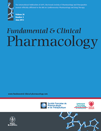The effect of ezetimibe and simvastatin on hemostasis in patients with isolated hypercholesterolemia
Abstract
The aim of this study was to assess the strength of hemostatic effects of ezetimibe, administered alone or in combination with simvastatin, in patients with isolated hypercholesterolemia. One hundred and four patients with isolated primary hypercholesterolemia were randomized to one of four treatment groups, simultaneously treated for 90 days with ezetimibe (10 mg daily), simvastatin (40 mg daily), ezetimibe (10 mg daily) plus simvastatin (40 mg daily), or placebo. Plasma lipids/lipoproteins and hemostatic cardiovascular risk factors were assessed on the day of randomization and after 30 and 90 days of therapy. Despite improving lipid/lipoprotein profile by both simvastatin and ezetimibe, only simvastatin reduced plasma levels/activity of fibrinogen, factor VII, factor X, von Willebrand factor, and plasminogen activator inhibitor-1. The strongest effects on plasma lipids/lipoproteins and the assessed hemostatic variables were observed when patients were treated with both simvastatin and ezetimibe. With the exception of oxidized low-density lipoproteins, the hemostatic effects of simvastatin or simvastatin plus ezetimibe did not correlate with the changes in plasma lipids/lipoproteins. Our study shows that simvastatin is a more effective agent than ezetimibe in affecting coagulation and fibrinolysis in individuals with isolated hypercholesterolemia. It also suggests that the combined administration of simvastatin and ezetimibe may bring more benefits to patients than monotherapy with only one of these agents.




